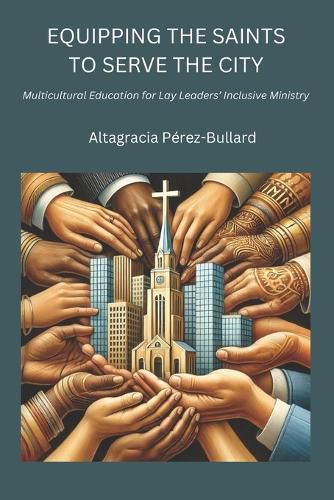Readings Newsletter
Become a Readings Member to make your shopping experience even easier.
Sign in or sign up for free!
You’re not far away from qualifying for FREE standard shipping within Australia
You’ve qualified for FREE standard shipping within Australia
The cart is loading…






Urban ministry is challenging because of unprecedented diversity of populations, socio-economic challenges, failing infrastructure, and constantly changing populations with limited resources. Few resources for leadership development (education) address this complex context or provide the analytical tools and skills necessary for competency in these congregations. Using Case Study as a methodology of Qualitative Research this book argues for the necessity of applying Critical Multicultural Education's pedagogical theory and praxis to developing lay leaders of multicultural urban congregations that seek to be diverse and inclusive. It analyzes the bounded cases of two Episcopal urban parishes in a Western Diocese of the U.S. (Diocese of Los Angeles) and assesses their needs for leadership development through a critical lens appropriate to their goal of being diverse and inclusive congregations, responsive to their communities' needs. Through thick description, contextual analysis, and a review of documents, the book identifies the issues confronting these congregations and evaluates the responsiveness of liberative pedagogies explored. It offers an appropriate pedagogical model as a working hypothesis for use by congregations seeking to develop leadership that is responsive to the contemporary urban context. The data and analysis of this project add knowledge to the field of Practical Theology and Christian Education from a critical perspective.
$9.00 standard shipping within Australia
FREE standard shipping within Australia for orders over $100.00
Express & International shipping calculated at checkout
Urban ministry is challenging because of unprecedented diversity of populations, socio-economic challenges, failing infrastructure, and constantly changing populations with limited resources. Few resources for leadership development (education) address this complex context or provide the analytical tools and skills necessary for competency in these congregations. Using Case Study as a methodology of Qualitative Research this book argues for the necessity of applying Critical Multicultural Education's pedagogical theory and praxis to developing lay leaders of multicultural urban congregations that seek to be diverse and inclusive. It analyzes the bounded cases of two Episcopal urban parishes in a Western Diocese of the U.S. (Diocese of Los Angeles) and assesses their needs for leadership development through a critical lens appropriate to their goal of being diverse and inclusive congregations, responsive to their communities' needs. Through thick description, contextual analysis, and a review of documents, the book identifies the issues confronting these congregations and evaluates the responsiveness of liberative pedagogies explored. It offers an appropriate pedagogical model as a working hypothesis for use by congregations seeking to develop leadership that is responsive to the contemporary urban context. The data and analysis of this project add knowledge to the field of Practical Theology and Christian Education from a critical perspective.